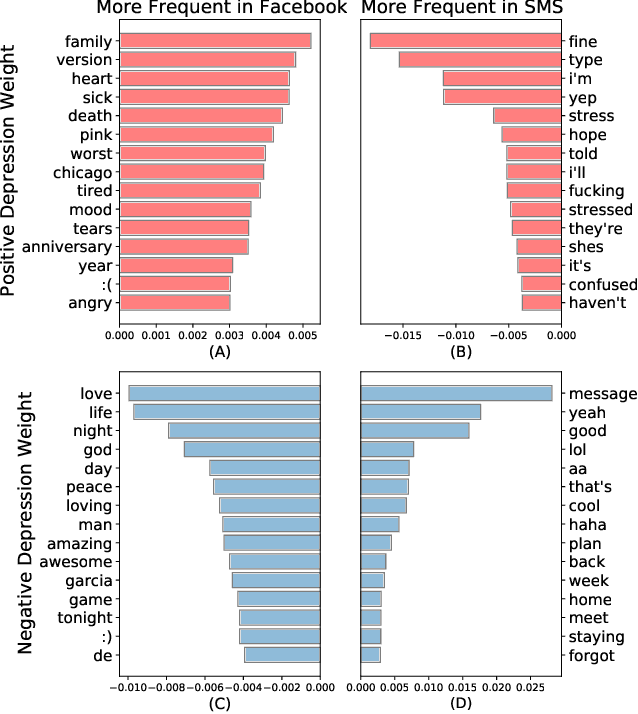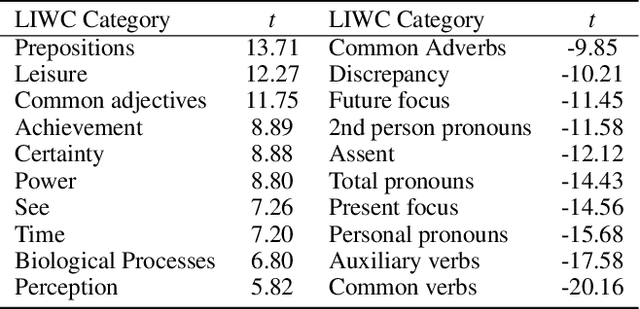Xiangyu Tao
Cross-Platform Difference in Facebook and Text Messages Language Use: Illustrated by Depression Diagnosis
Feb 09, 2022



Abstract:How does language differ across one's Facebook status updates vs. one's text messages (SMS)? In this study, we show how Facebook and SMS use differs in psycho-linguistic characteristics and how these differences drive downstream analyses with an illustration of depression diagnosis. We use a sample of consenting participants who shared Facebook status updates, SMS data, and answered a standard psychological depression screener. We quantify domain differences using psychologically driven lexical methods and find that language on Facebook involves more personal concerns, experiences, and content features while the language in SMS contains more informal and style features. Next, we estimate depression from both text domains, using a depression model trained on Facebook data, and find a drop in accuracy when predicting self-reported depression assessments from the SMS-based depression estimates. Finally, we evaluate a simple domain adaption correction based on words driving the cross-platform differences and applied it to the SMS-derived depression estimates, resulting in significant improvement in prediction. Our work shows the Facebook vs. SMS difference in language use and suggests the necessity of cross-domain adaption for text-based predictions.
 Add to Chrome
Add to Chrome Add to Firefox
Add to Firefox Add to Edge
Add to Edge